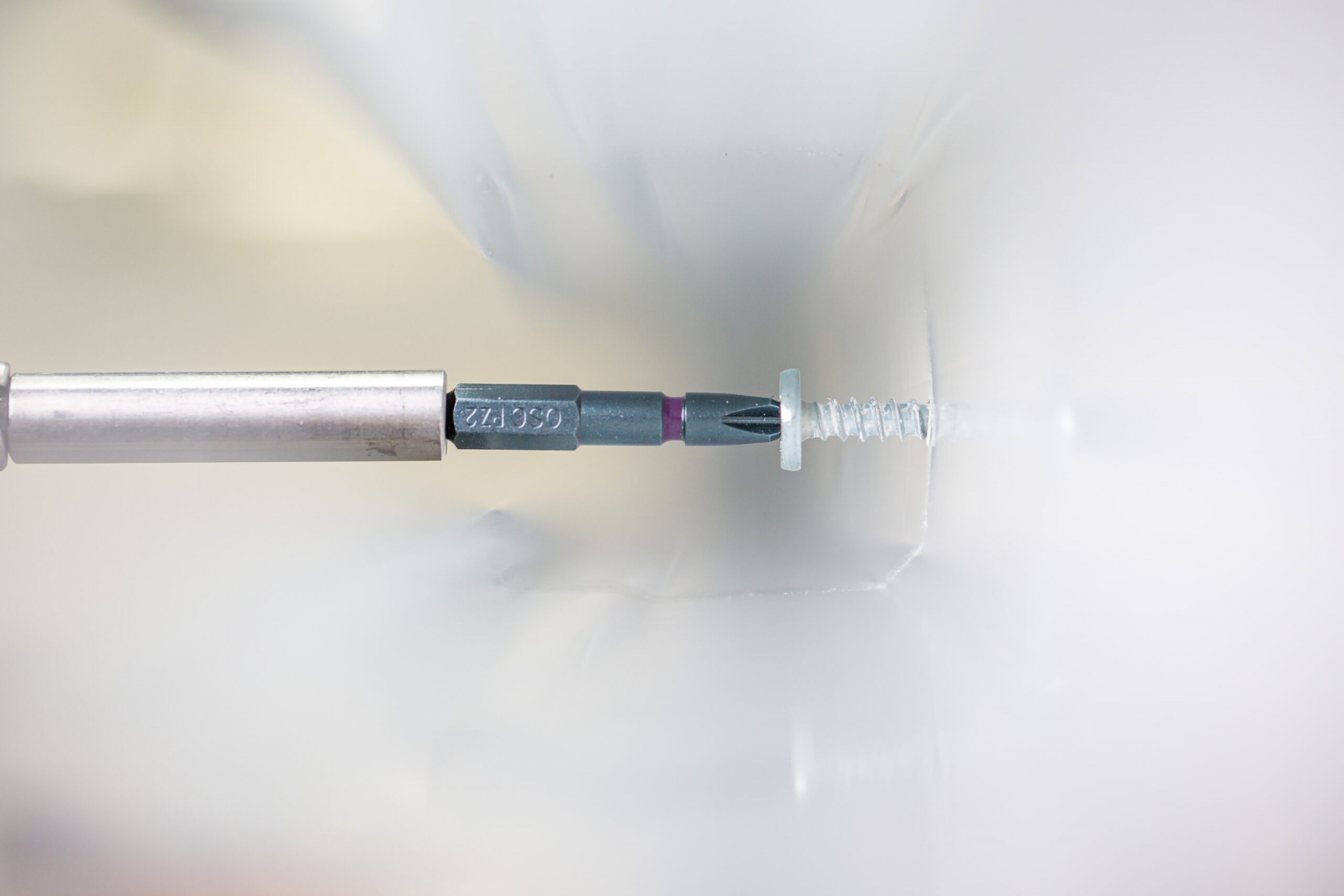
AA: People regularly confuse self-tapping and self-drilling but there’s a fairly major difference: self-drilling screws drill their own pilot holes whereas self-tapping screws do not.
Both types of screw can tap their own threads but, generally speaking, a self-drilling screw will have a higher thread count than a self-tapping screw. It’s worth noting that self-tapping screws can drill their own threads but cannot drill through hard objects like metal.
AA: Self-drilling screws are all self-tapping but not all self-tapping are self drilling! So no, the two cannot be used interchangeably and if you opt for self-tapping when you in fact, need self-drilling, you may find yourself in trouble.
AA: No, self-tapping screws will save you time over traditional screws but self-drilling screws actually cut out an additional couple of steps. Here’s how to use them:
| How to use self-tapping screws | How to use self-drilling screws |
|
|
AA: Self-tapping screws are great. They cut their own thread. No pre-drilling is required, and less mess is made. They also create a more precise and secure thread which makes for a stronger hold.
AA: All self-drilling screws are self tapping so have the benefits I just mentioned but in addition to this, they feature a drill bit shaped point so can cut through metal and harder materials. They don’t require pilot holes which accelerates installation time and lowers the cost and need for additional drill bits.
AA: We’d recommend a heavy duty screw. It’s designed to drill through steel up to 3.5mm thick so is perfect for joining cable trays or trunking as well as fixing earth tags to galvanised trunking/boxes.
Address: 9C1/4 Homepride AV. Warwick Farm 2170 NSW
Hotline: 04 2227 8866 - 04 6888 3866
Email: sales@sunnynew.com.au; vnonesteel@gmail.com
Web: www.sunnynew.com.au
Hotline
